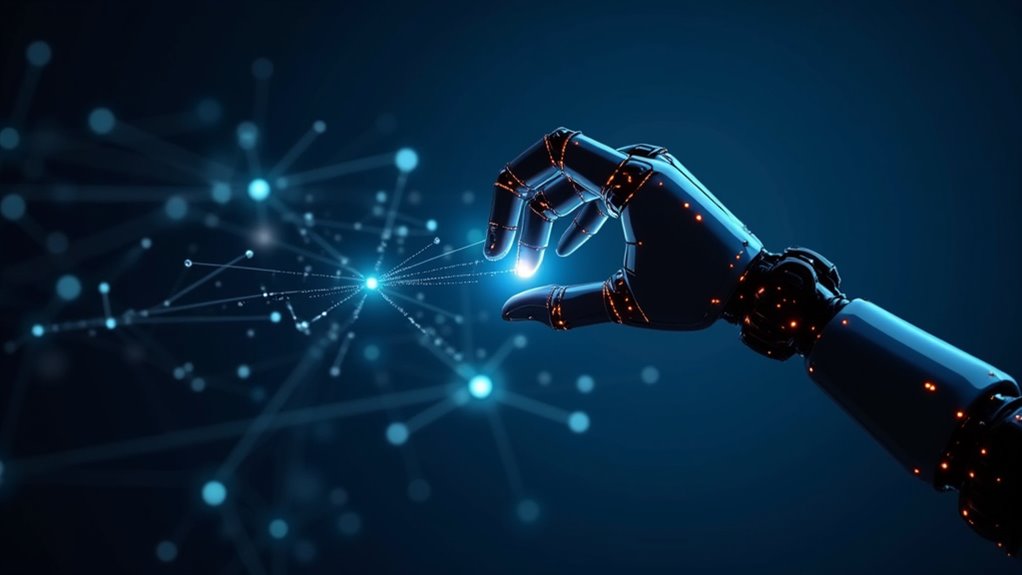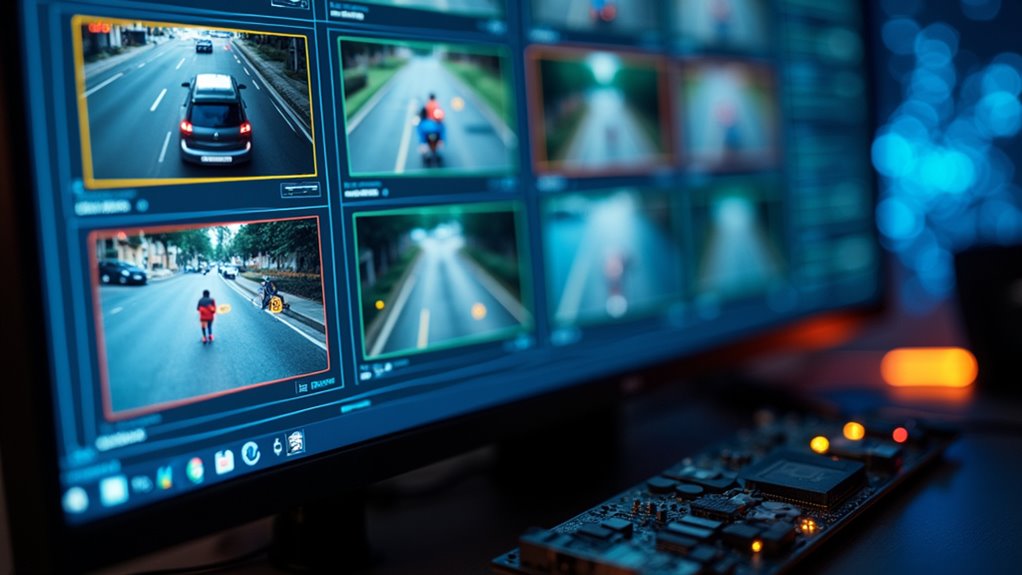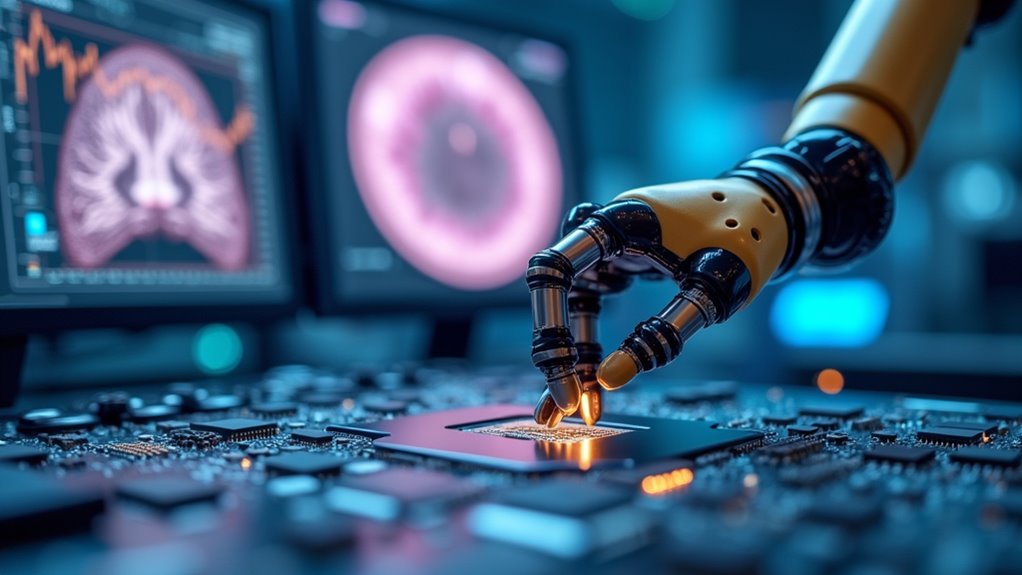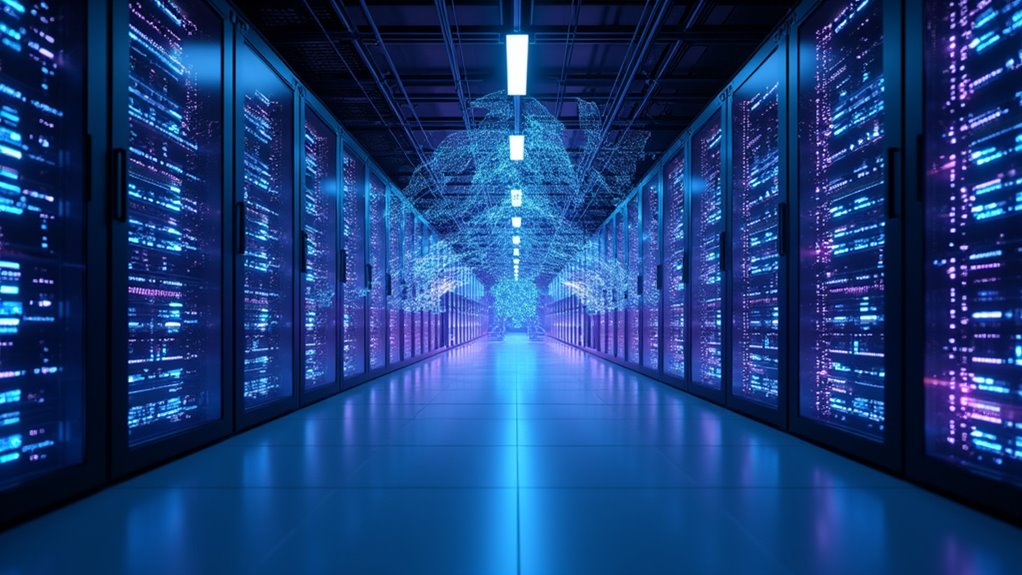AI is revolutionizing marketing automation by analyzing massive datasets faster than any human could dream of. It’s not just a fancy add-on—it’s becoming essential for survival in today’s digital battlefield. Through personalized content delivery, 24/7 chatbot support, and predictive analytics, AI helps businesses connect with customers more effectively while slashing operational costs. Your competitors are probably already using it to score leads and optimize email campaigns. Discover how this $107.5 billion industry might leave you behind if you don’t adapt.
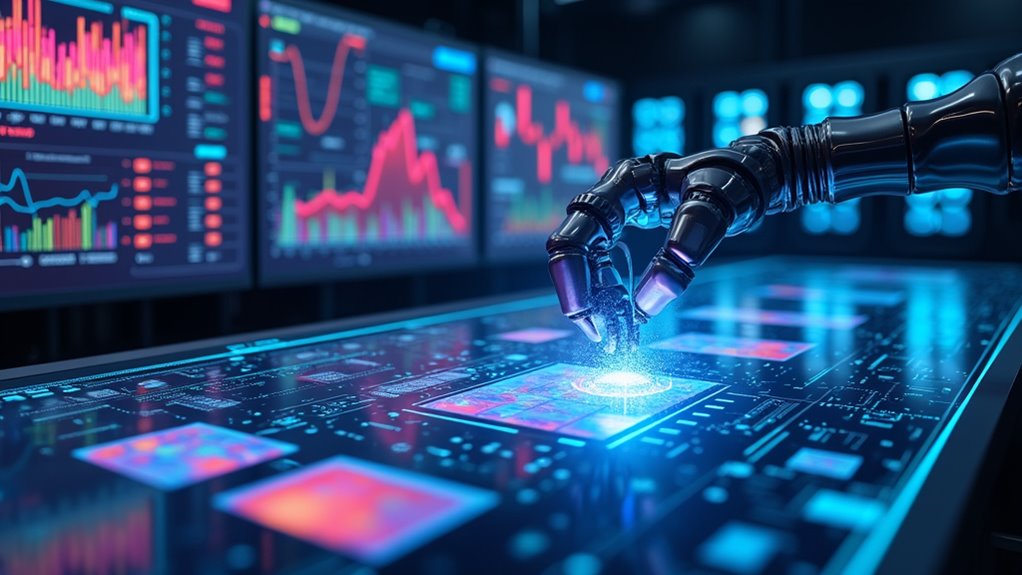
While traditional marketing techniques still have their place, AI is rapidly transforming how businesses connect with their customers. The integration of AI Trends within marketing automation has revolutionized how companies analyze customer data and automate routine tasks. Machine Learning algorithms now sift through massive datasets that would take humans months to process, improving accuracy and delivering insights in minutes. These advancements have led to operational efficiency and significant reductions in marketing overhead costs.
Don’t underestimate this shift—it’s not just a fancy tech upgrade, it’s becoming essential for survival in the digital marketplace.
The AI market in marketing is exploding, expected to reach a staggering $107.5 billion by 2028. Why? Because it works. AI powers everything from content generation to customer service chatbots that respond instantly to queries. These aren’t your clunky chatbots of yesteryear; they’re sophisticated systems that learn from each interaction. Businesses leverage this technology for 24/7 customer support without needing human staff around the clock.
Personalization has become the holy grail of marketing, and AI delivers it on a silver platter. When 71% of consumers expect personalized interactions, can you afford to send generic messages? AI analyzes purchase history and browsing patterns to create tailored experiences that boost engagement and conversion rates. Ethical considerations around customer privacy must guide these personalization efforts to maintain trust while delivering relevant experiences. Your customers want to feel special, not like another name on a list.
Email marketing gets supercharged with AI too. Imagine sending thousands of personalized emails without breaking a sweat. AI handles the heavy lifting, analyzing performance in real-time and adjusting strategies accordingly. The result? Higher open rates and more sales.
Lead scoring becomes effortless with AI systems that quickly identify high-potential prospects. Stop wasting time on dead-end leads! AI predicts which prospects are ready to buy and which need more nurturing, saving you countless hours and marketing dollars.
Predictive analytics represents perhaps the most powerful application, allowing marketers to anticipate customer needs before customers even recognize them themselves. This isn’t crystal ball wizardry—it’s sophisticated pattern recognition applied to historical data, enabling strategic campaign planning that hits the mark every time.
Frequently Asked Questions
What Security Risks Does Ai-Driven Marketing Automation Pose?
AI-driven marketing automation poses several security risks.
Data privacy concerns are paramount, as customer information can be breached, leading to identity theft or unauthorized access.
Algorithm bias represents another significant risk, where AI systems may unfairly target or exclude certain demographics based on flawed data patterns.
Companies must implement robust security protocols and regularly audit their AI systems.
Don’t assume your marketing automation is secure just because it’s sophisticated—AI vulnerabilities can be exploited just like any other technology.
How Costly Is Implementing AI in Small Business Marketing?
Small businesses face significant budgeting constraints when implementing AI marketing tools.
Initial AI investment analysis reveals costs ranging from $5,000-$30,000 upfront, with annual expenses averaging around $1,800. Ouch! Free options like ChatGPT offer entry points, but all-encompassing solutions demand deeper pockets.
Monthly maintenance? That’ll be $1,000-$5,000, thank you very much.
Despite these costs, ROI potential remains attractive through efficiency gains, personalization capabilities, and reduced manual labor expenses over time.
Can AI Marketing Tools Integrate With Legacy Systems?
Yes, AI marketing tools can integrate with legacy systems, but it’s not always a smooth ride.
Integration challenges often stem from outdated architectures that weren’t built for today’s AI demands. Companies typically overcome legacy system compatibility issues through APIs, middleware solutions, or cloud migration strategies.
Sometimes you’ll need to choose between partial integration or complete overhaul. The good news? With proper planning and technical expertise, even decades-old systems can join the AI party—just expect some technical headaches along the way.
How Long Does It Take to See ROI From AI Marketing?
The ROI timeline for AI investments in marketing typically spans 6-18 months.
Companies see tangible results when they commit to the process, with many experiencing up to 30% growth in lead generation.
Patience pays off! Organizations using AI marketing tools are 2.6 times more likely to boost revenue than their technologically hesitant counterparts.
Predictive analytics can pump up marketing ROI by 20%.
What Skills Do Marketers Need to Work With AI Tools?
Marketers diving into AI need a surprising mix of technical and human skills.
Sure, data analysis is non-negotiable—you’ll need to interpret what those fancy algorithms are telling you about customer behavior.
But don’t toss creative thinking out the window! The most successful AI-wielding marketers balance analytical prowess with innovative approaches.
They understand the numbers while imagining possibilities the machines can’t.
Remember, AI is your assistant, not your replacement.
Master both skills, and you’ll outperform those who only embrace one.

